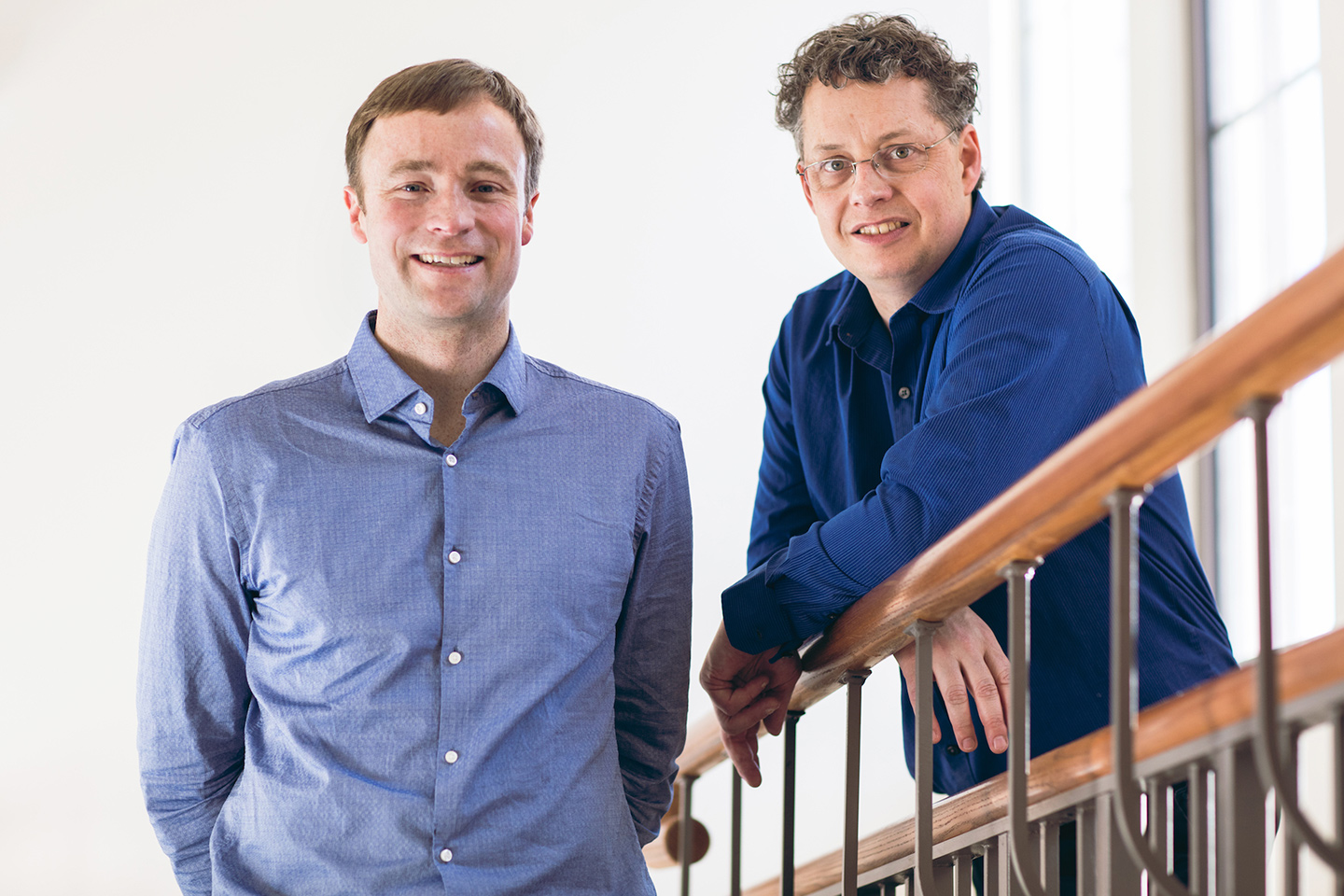“There is SO MUCH bullshit,” Carl Bergstrom declared on Wednesday, starting off the inaugural lecture in a new Information School course, “Calling Bullshit in the Age of Big Data.”
Bergstrom, a biology professor, and Jevin West, an assistant professor in the iSchool ran through a litany of ways information can be manipulated to hide the truth. Their examples included flowery language, corporate speak and misleading graphics drawn from such arenas as news, politics, startup culture, science and, of course, higher education.
At one point in Wednesday’s lecture, Bergstrom even called BS on one of the slides West presented that purported to show “explosive growth” for the Calling BS website. When presented another way, the data showed that while there has been lots of traffic to the site overall, it’s ebbed and flowed from week to week.
The course has attracted attention from the moment the duo launched their website and announced their syllabus in January. Numerous media outlets have featured the class, which aims to teach students how to define and identify BS and then effectively call it out.
The idea resonated quickly with students. Offered as a one-credit class this spring, it “sold out” like a rock concert, filling all 160 seats within one minute after registration began. West and Bergstrom plan to offer a three-credit version of the course for fall quarter.
“Carl and I really think these are the kinds of skills – refuting bullshit, identifying bullshit – are the things that we need in today’s society more than ever,” West told students.
Each class session will take up a different topic. As the online syllabus shows, West and Bergstrom will move from definitions and "spotting BS" to a session on “the natural ecology of BS.” Subsequent topics include causality, statistical traps, big data, publication bias and predatory publishing, fake news, and the ethics of calling and refuting BS.
In a lengthy online FAQ, the instructors say the class is not about any one party or politician — despite being "particularly timely today" — and will not seek to comment on the current political situation in the country or the world.
"This class is about how to spot bullshit and how to call it. It's not about cataloguing all the bullshit out there, telling students what we think is bullshit in contemporary science and society, or calling bullshit on the most egregious cases," Bergstrom said before the class began.
Examples to be used in class, he said, are those "that serve a pedagogical purpose" by showing ways BS is spread and demonstrating effective ways to refute it. Basically, they say, the course is about how numbers, statistics, data visualization models and algorithms are increasingly used for propagating BS, and how people can detect and it and avoid being taken in.
And though the class is for UW students, Bergstrom and West plan to edit their lectures into video clips and make them publicly available on the UW's YouTube channel.
"We don’t care whether our students agree with our world views," Bergstrom said, "but we do want them to have the skills to see through nonsense, form well-founded beliefs based on evidence and make their best arguments for those beliefs."
